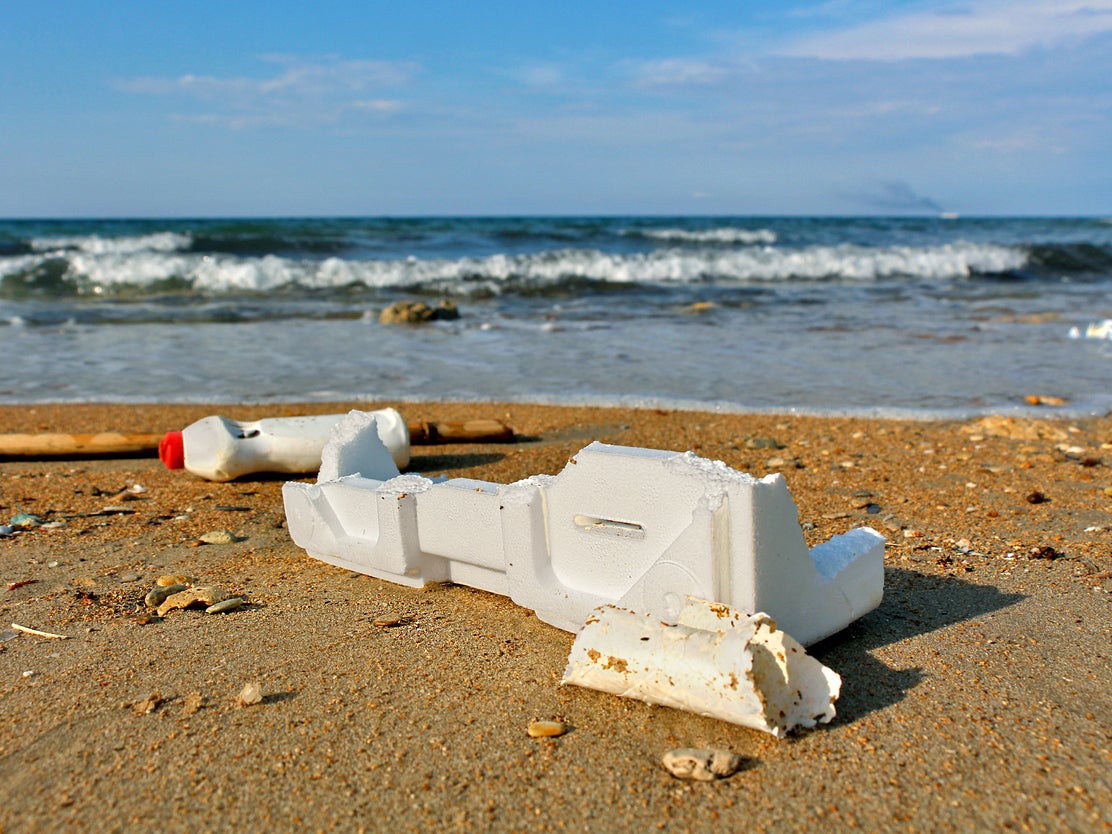Costa Rica to completely ban polystyrene due to environmental impact
President says his countrymen must make changes ‘in our minds but also in our actions’

Your support helps us to tell the story
From reproductive rights to climate change to Big Tech, The Independent is on the ground when the story is developing. Whether it's investigating the financials of Elon Musk's pro-Trump PAC or producing our latest documentary, 'The A Word', which shines a light on the American women fighting for reproductive rights, we know how important it is to parse out the facts from the messaging.
At such a critical moment in US history, we need reporters on the ground. Your donation allows us to keep sending journalists to speak to both sides of the story.
The Independent is trusted by Americans across the entire political spectrum. And unlike many other quality news outlets, we choose not to lock Americans out of our reporting and analysis with paywalls. We believe quality journalism should be available to everyone, paid for by those who can afford it.
Your support makes all the difference.Costa Rica is set to ban the import and sale of polystyrene due to environmental concerns over the packaging material.
Signed into law earlier this week, it will come into effect in 2021, the same year the government has said the country will become the first plastic-free and carbon-free country in the world.
Polystyrene, commonly known as “styrofoam” in the US, is widely used for packaging and transporting food due to its lightness, low production costs and because it is hygienic.
However, it is not biodegradable and instead the crumbly material quickly breaks down into damaging microplastics which easily enter waterways and the ocean where they are consumed by marine creatures.
The chemicals used in its production are hazardous to humans and those who are exposed to the styrene component during its production can develop irritation on their skin, eyes, can suffer respiratory and gastrointestinal effects.
The same chemicals also diffuse into waterways and seas contaminating the water and many of the animals we eat.
Costa Rica has long recognised its unique biodiversity as being among the country’s strongest assets. The country covers just 0.03 per cent of the Earth’s surface, but is home to about 4 per cent of the species on the planet, according to its government.
Plastic is recognised as a major threat to this abundance.
The government said it will “promote and encourage the reconversion of industries that work in the import and manufacture of containers or packaging made of expanded polystyrene, encouraging the development of more environmentally friendly alternatives.”
Costa Rican president Carlos Alvarado Quesada said it was necessary to make a change “in our minds but also in our actions” to protect the natural environment and human health.
He said: “Today we have proved to Costa Rica that we will fight to safeguard its fundamental rights, such as the right to health, and at the same time we are sending a clear message that these actions evidence this administration’s compromise to achieve the decarbonisation of our economy.”
Haydée Rodríguez, Costa Rica’s Viceminister for Water and Oceans added that expanded polystyrene is one of the largest pollutants of our rivers and oceans, remaining for years in our ecosystems, damaging our wildlife, such as turtles, fish and other animals which think of it as food.
She said: “Only with clean and healthy rivers and oceans, we will be able to face the climate crisis and guarantee a healthy quality of life to our coastal communities.”
When he took office in 2018, President Alvarado announced a bold plan to ban fossil fuels and become the first fully decarbonised country in the world.
At his inauguration speech in May last year, the former journalist, who made his entrance on a hydrogen-fuelled bus, said: “Decarbonisation is the great task of our generation and Costa Rica must be one of the first countries in the world to accomplish it, if not the first.”
“We have the titanic and beautiful task of abolishing the use of fossil fuels in our economy to make way for the use of clean and renewable energies.”
Join our commenting forum
Join thought-provoking conversations, follow other Independent readers and see their replies
Comments